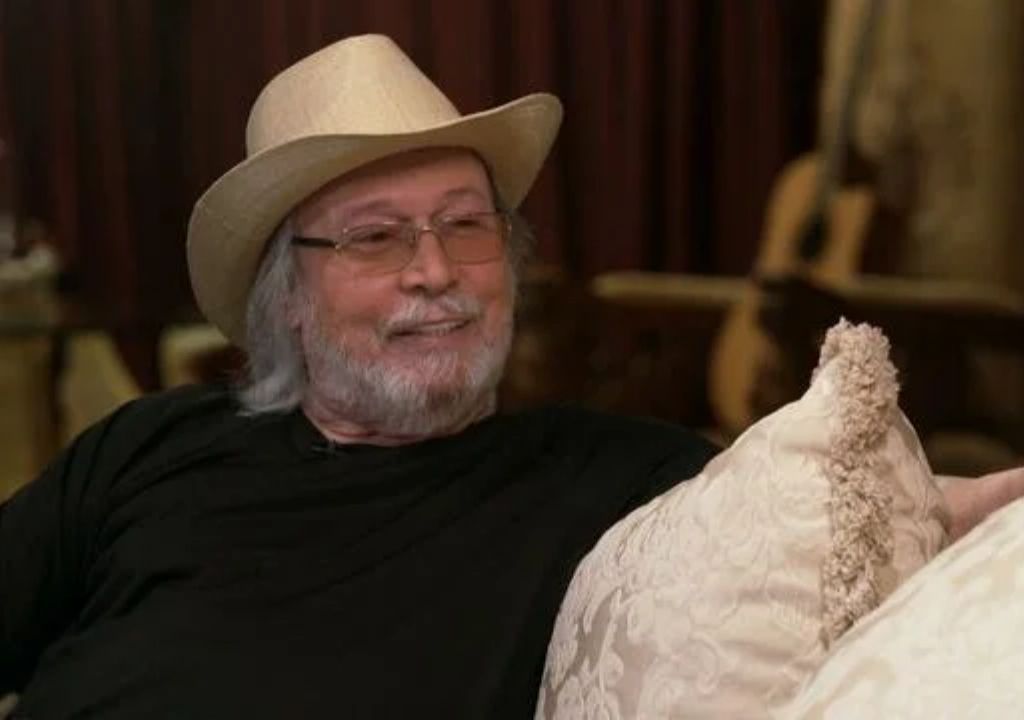
On a warm evening in Washington, D.C., Barry Gibb adjusted his tuxedo, smiled faintly, and took his seat among a new class of honorees at the Kennedy Center. For a man whose voice has soundtracked generations, the moment carried both pride and disbelief.
“I don’t know why you’re giving it to me,”
he admitted with characteristic modesty.
“But I’m very proud.”
This event marked yet another milestone in a career already overflowing with achievements. As the sole surviving Bee Gee, Barry carries not only the music but also the memories of a family deeply intertwined and tested by fame. With 16 number-one hits to his name—many co-written alongside his brothers Robin and Maurice—Gibb has solidified his position as one of history’s most successful songwriters. Yet, standing honored in America’s capital, the numbers mattered less than the stories behind those timeless songs, and the scars—both physical and emotional—that forged them.
Michael Bublé, who introduced Barry at the Kennedy Center Honors, perfectly captured the essence of the Bee Gees’ catalog. He described it as more than just catchy tunes:
“It’s not just a man with a sensitive side but someone with real emotional intelligence. By tapping into a deeper part of himself and sharing it with the world, he brings us back to our very own humanity. Did I mention the songs are sexy as hell? Yes, they are.”
This blend of soul, sensuality, and honesty made the Bee Gees truly unique. From the aching balladry of How Can You Mend a Broken Heart to the pulsing disco beats of Stayin’ Alive, their music transcended genres and generations. However, Barry has always emphasized the crucial role of failure and resilience.
“We’ve written a lot of great songs,”
he chuckled,
“and we’ve written a lot of crap. That’s how it works. If you don’t have failure, you can’t have success—because every time you fail, you learn something.”
The Bee Gees’ journey began humbly as earnest teenagers harmonizing in 1960s Australia, their sensitive ballads breaking through internationally. But the real revolution came in the 1970s when they embraced the disco sound that would define an era. With the Saturday Night Fever soundtrack, they didn’t just top charts—they became the heartbeat of a cultural movement.
At his Miami home, Barry treasures reminders of this golden era. His office walls carry gold records and plaques commemorating six consecutive number-one singles—a feat rivaled only by the Beatles.
“I’d have loved it to be seven,”
he laughed. For Barry, the triumphs cannot be separated from the stories embedded in the lyrics.
“It’s how deep you can go with the lyrics,”
he explained.
“What can you say that other people don’t say?”
Barry’s emotional depth was shaped early. As a toddler, he suffered a severe accident involving boiling water, which doctors feared would claim his life. Surviving against odds meant two years in hospital followed by two silent years.
“I don’t remember it, but I have the scars,”
he recalled.
“And I think that did something to me—gave me that insight, that instinct about music, about life, about everything.”
The Bee Gees’ signature harmonies were the product of not just talent but profound family bonds. Robin’s plaintive tenor and Maurice’s musical mastery blended with Barry’s lead vocals to create an unforgettable sound. Yet, like many famous families, fame brought both unity and conflict.
“The trouble with fame,”
Barry reflected,
“is that it takes over everything. It makes you competitive. And if you’re in a group, you can’t really compete against each other. You’ve got to unite against something.”
Barry admits he overlooked his brothers’ frustrations for years.
“I got too much attention. Robin didn’t get enough. Mo certainly didn’t get enough. I never understood their feelings until a couple of years ago.”
After Maurice passed in 2003 and Robin in 2012, Barry was left alone to carry their legacy. The loss felt like the shattering of the glue that held the group together.
“It’s like losing the glue,”
he said. But with time, his reflections softened:
“I understand now. I understand what made them unhappy. They were right—it was a group, and we should have been supporting each other more.”
Despite monumental success, the Bee Gees faced backlash, especially in the 1980s when disco was widely rejected. Barry recalls how radio stations blacklisted them.
“It was painful,”
he said.
“We were in our forties and couldn’t get on the radio. But we kept writing—for Dolly and Kenny, for Barbra Streisand, for Diana Ross, Dionne Warwick, Frankie Valli.”
The songs thrived through others’ voices, sometimes in ways that moved Barry deeply.
“Every time I hear Al Green sing How Can You Mend a Broken Heart, I think—I never heard anything better.”
When asked about legacy, Barry remains humble, even indifferent.
“Do you think about whether people will remember you?”
he was asked. His answer was blunt:
“No. I have no feelings about whether people remember me or the Bee Gees or not. When I’m gone, you can do what you like.”
Nonetheless, the public refuses to let the last Bee Gee fade away. In 2017, Barry performed solo at Glastonbury to an audience of over 100,000, a powerful moment of transformation.
“Up to that point, I thought, well, I’m a Bee Gee. This is what I’ll always be. But when they responded to me singing on my own—it was a shock to my system. It meant everything. I’ll never forget it.”
Now living quietly in Miami, Barry faces hearing troubles that make future performances unlikely, yet his creativity endures. He is writing new music for an upcoming Bee Gees biopic and working on his memoir. Once doubting his worthiness for recognition, the Kennedy Center Honors stand as a profound reminder of his enduring place in music history.
Through every wedding dance to How Deep Is Your Love, every fist raised to Stayin’ Alive, and every heartbreak soothed by his lyrics, Barry Gibb’s voice lives on—an immortal harmony reflecting the spirit of three brothers united by music and blood.
